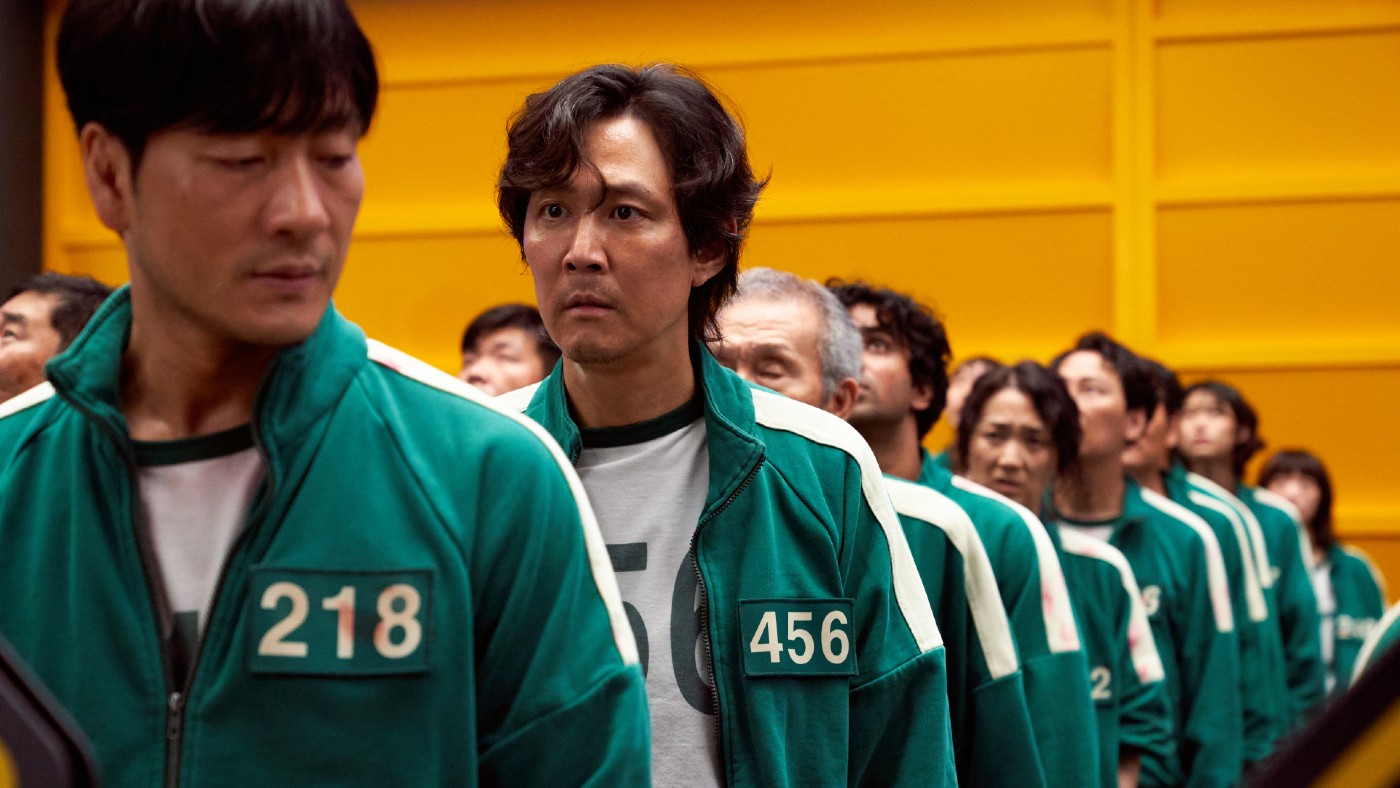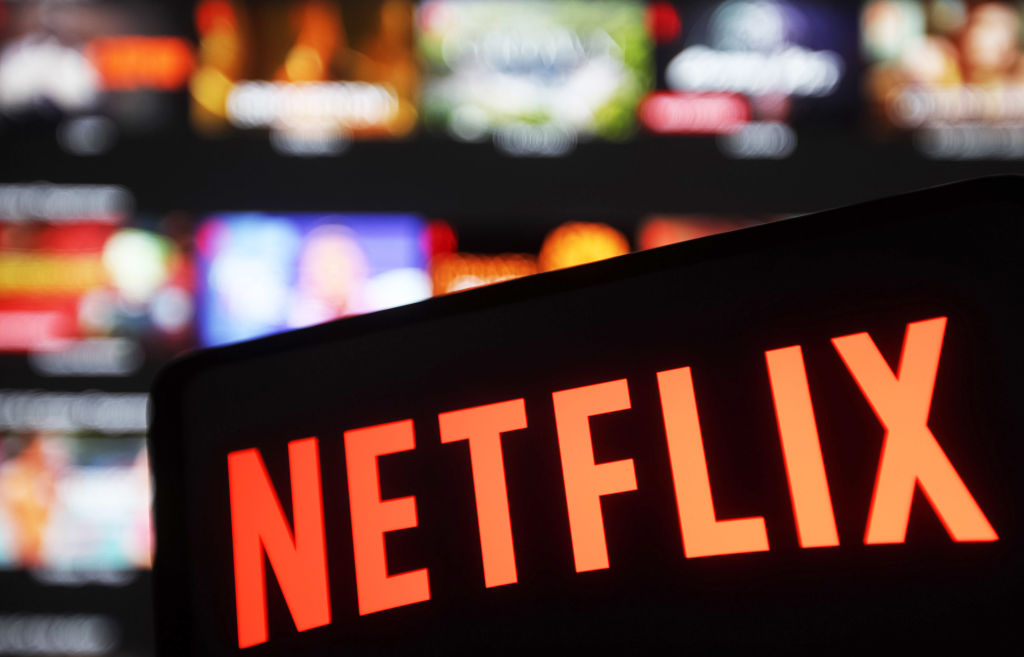Squid Games: the real-life crisis that inspired hit Netflix show
Brutal survival drama portrays fictional victims of South Korea’s soaring household debt

A free daily email with the biggest news stories of the day – and the best features from TheWeek.com
You are now subscribed
Your newsletter sign-up was successful
A “hyper-violent” South Korean show which debuted on the small screen less than three weeks ago is on track to become Netflix’s biggest original series of all time.
The premise of dystopian thriller Squid Game is centred around a brutal survival game where successful participants can walk away with 45.6bn Korean won (£28m).
A group of 456 indebted and desperate people are lured into the competition after being recruited by a mysterious organisation. But the game has what the BBC described as a “bloodthirsty” twist: if you lose, you die.
The Week
Escape your echo chamber. Get the facts behind the news, plus analysis from multiple perspectives.

Sign up for The Week's Free Newsletters
From our morning news briefing to a weekly Good News Newsletter, get the best of The Week delivered directly to your inbox.
From our morning news briefing to a weekly Good News Newsletter, get the best of The Week delivered directly to your inbox.
The harrowing show, which draws parallels with Battle Royale and The Hunger Games, has been a runaway success for Netflix, reaching number one in 90 countries just ten days after its release. According to TV website What to Watch, 95% of Squid Game views have been outside the UK.
When considering why a show with such a gory, bleak premise has received such global acclaim, The Guardian’s Monica Tan thought it could be to do with our collective experience over the past 20 months. “I wondered if it has struck a chord because so many of us are feeling burned out, ‘over it’, and we’re searching for a path of least resistance out of the daily grind,” she wrote.
Another reason for Squid Game’s success is its ability to “produce a level of childlike emotion” in its viewers, said Tom Usher in GQ. Instead of the “brash, comic deaths” often associated with the dystopian genre, “each contestant’s death feels like a punch in the gut because they feel like fully realised human beings”, he added.
During CodeCon, Vox Media’s annual technology conference, Netflix co-CEO Ted Sarandos said Squid Game “is on track to be its biggest show ever and is already number one in most countries”, The Verge’s Alex Heath tweeted.
A free daily email with the biggest news stories of the day – and the best features from TheWeek.com
According to data acquired by Forbes, the five most popular original series on the streaming platform are currently the first series of Bridgerton, Lupin, The Witcher and Sex/Life, and the third series of Stranger Things.
But despite all the hype surrounding his show, director Hwang Dong-hyuk has not yet committed to delivering a second season. “I don’t have well developed plans for Squid Game 2”, he told Variety’s Patrick Fratter, adding: “it is quite tiring just thinking about it”.

-
 What to know before filing your own taxes for the first time
What to know before filing your own taxes for the first timethe explainer Tackle this financial milestone with confidence
-
 The biggest box office flops of the 21st century
The biggest box office flops of the 21st centuryin depth Unnecessary remakes and turgid, expensive CGI-fests highlight this list of these most notorious box-office losers
-
 The 10 most infamous abductions in modern history
The 10 most infamous abductions in modern historyin depth The taking of Savannah Guthrie’s mother, Nancy, is the latest in a long string of high-profile kidnappings
-
 How will the Warner Bros. bidding war affect the entertainment industry?
How will the Warner Bros. bidding war affect the entertainment industry?Today’s Big Question Both Netflix and Paramount are trying to purchase the company
-
 Can Nigel Farage and Reform balance the books?
Can Nigel Farage and Reform balance the books?Today's Big Question Nigel Farage has, for the first time, ‘articulated something resembling a fiscal rule’ that he hopes will win over voters and the markets
-
 Why are Americans using 'buy now, pay later' apps to buy groceries?
Why are Americans using 'buy now, pay later' apps to buy groceries?Today's Big Question A 'layaway program, but reversed'
-
 Kenya unrest: a warning for Africa's future?
Kenya unrest: a warning for Africa's future?Today's Big Question Youth-led anger over unemployment, debt and corruption reflects tensions simmering across the continent
-
 Are streaming bundles reinventing cable TV?
Are streaming bundles reinventing cable TV?Today's Big Question The old-fashioned convenience of one service, one fee
-
 US debt ceiling: will Congress deadlock be broken?
US debt ceiling: will Congress deadlock be broken?Today's Big Question Political brinkmanship between President Biden and House Republicans could spell ‘economic calamity’
-
 Netflix co-CEO dubs Elon Musk the 'bravest, most creative person on the planet'
Netflix co-CEO dubs Elon Musk the 'bravest, most creative person on the planet'Speed Read
-
 Netflix adds 2.4 million subscribers, beating expectations for 3rd quarter
Netflix adds 2.4 million subscribers, beating expectations for 3rd quarterSpeed Read